Grammar in Context 2 Fifth Edition Pdf Download
Welcome to GDAE's website!
This website presents GDAE's current research and educational efforts in 3 areas:
Land, Energy, and Climate
Green Economics
Environmental and Natural Resource Economics
Educational materials, including the "In Context" texts for Macroeconomics, Microeconomics, Principles of Economics and one-semester Essentials of Economics, as well as free teaching modules can now be accessed at their new location at theEconomics in Context Initiative at Boston University's Global Development Policy Center.
Publications reflecting GDAE's earlier research in areas such as globalization, trade, and feminist economics, including Policy Briefs and Discussion papers, can be found in our Resource Directory.
All GDAEbooksandworking papers are also available.
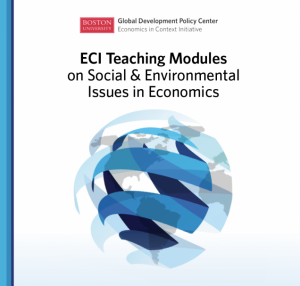

New from GDAE
New Edition of Environmental and Natural Resource Economics
November 15, 2021
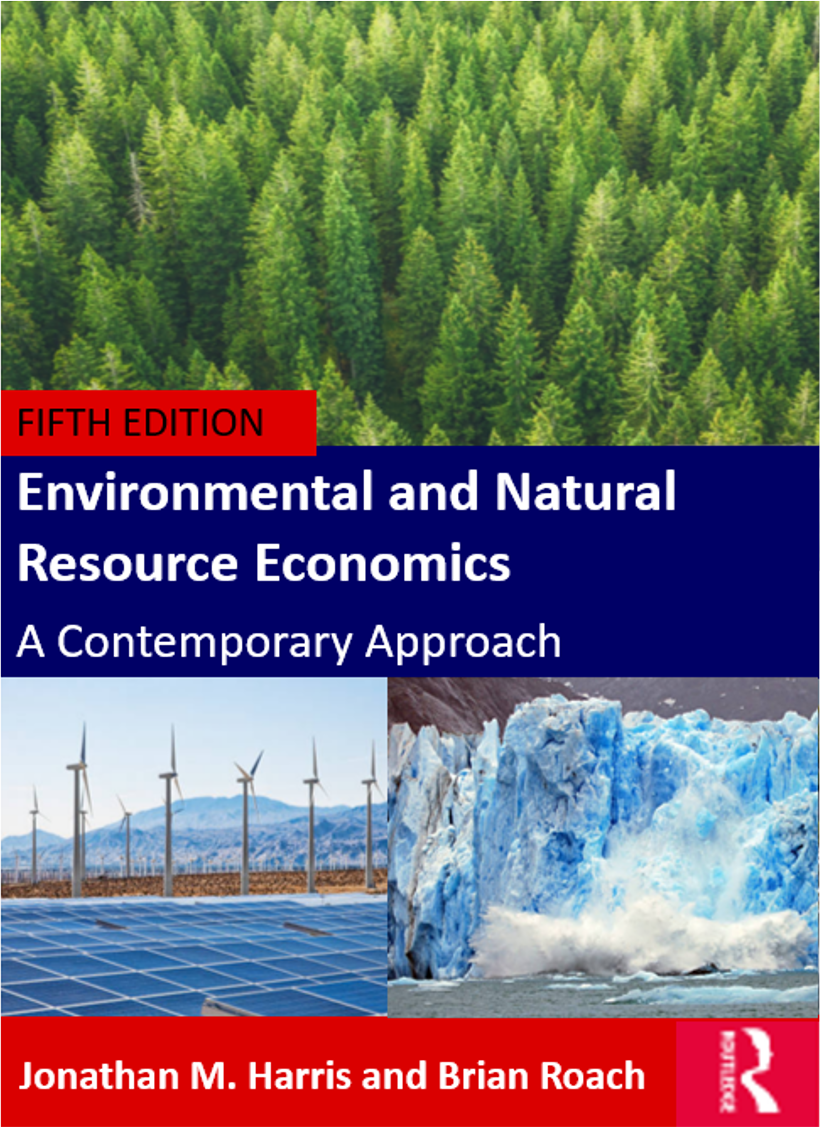
Thefifth edition ofEnvironmental and Natural Resource Economics: A Contemporary Approach has been published! This text balances coverage of standard environmental economics topics with broader ecological economics analysis and a global perspective on current issues such as global climate change, the transition to renewable energy, "green" national income accounting, population growth, agricultural sustainability, and natural resource systems. The new edition deals with the fast-changing economics of energy and climate, the rapid expansion of renewable energy, and issues of land management, as well as updating all data and presenting recent research on environmental issues. Five Advance Chapters can be substituted for corresponding chapters in the current text for fall semester 2021 courses.
 GDAE Senior Researcher Jonathan Harris was interviewed by Healthy Living Healthy Planet Radio on Saturday, October 16th for an episode on the Economics of Climate Change, together with Dr. Richard Tol of the University of Sussex. The podcast (Episode 98) is available at https://www.healthylivinghealthyplanetradio.com/listen-online Topics discussed included the health and economic impacts of climate change , economic policies for responding to climate change, expanding renewable energy, and developing climate resilience.
GDAE Senior Researcher Jonathan Harris was interviewed by Healthy Living Healthy Planet Radio on Saturday, October 16th for an episode on the Economics of Climate Change, together with Dr. Richard Tol of the University of Sussex. The podcast (Episode 98) is available at https://www.healthylivinghealthyplanetradio.com/listen-online Topics discussed included the health and economic impacts of climate change , economic policies for responding to climate change, expanding renewable energy, and developing climate resilience.
GDAE Researchers Present at Ecological Economics/Degrowth Conference
July 13, 2021
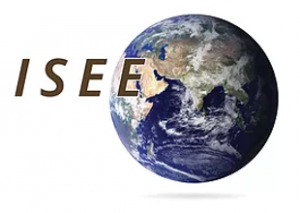
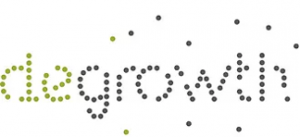

GDAE Researchers presented at the Online Joint Conference of the International Society for Ecological Economics, the European Society for Ecological Economics, and the international degrowth research networks, hosted by University of Manchester, UK, 5th-8th July 2021.
GDAE presentations included:
Anne-Marie Codur and Sam Polzin, Farmers as Ecosystem Regenerators: A Case Study of the Northeast Healthy Soil Network.
Jonathan Harris, Getting to Net Zero: Ecological Economics Can Help.
Brian Roach, Jonathan Harris, and Anne-Marie Codur, Teaching Ecological Economics: Energy, Climate, Growth, and Degrowth and Changing Economics of Renewable Energy.
The presentations emphasized lessons from the preparation of the fifth edition of Environmental and Natural Resource Economics: A Contemporary Approach : the increasing evidence of the severity and urgency of climate change, increased ambition for carbon reduction goals, and the essential role of renewable energy, energy efficiency, and carbon storage in soils and forests in achieving these goals.
Forum on Green and Blue New Deals
April 23, 2021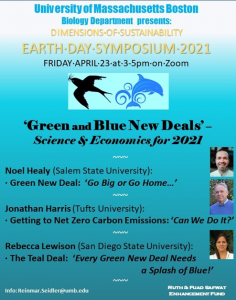
GDAE Senior Researcher Jonathan Harris participated in a symposium sponsored by the University of Massachusetts at Boston on Green and Blue New Deals: Science and Economics for 2021. Noel Healy (Salem State University) and Rebecca Lewison (San Diego State University) joined Dr. Harris with presentations on policy responses to the climate emergency. Dr. Healy's talk was entitled "Green New Deal: Go Big or Go Home", stressing the importance of a large-scale program with a focus on climate and economic justice. Dr. Harris's presentation on "Getting to Net Zero Carbon Emissions: Can We Do It?" surveyed the potential of renewable energy, energy efficiency, and carbon storage in forests, grasslands, wetlands, and agricultural soils. Dr. Lewison emphasized the many ways in which healthy ocean ecosystems are key to climate stabilization. View the webinar. See Dr. Harris's Powerpoint presentation.
New Research on Ecological Farming, Restorative Forestry, and Gender Economics
February 1, 2021
GDAE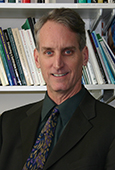
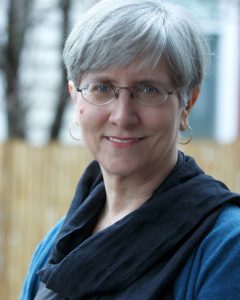 Researcher
Researcher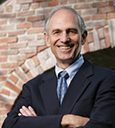 s have new published work on important frontier areas in economics and ecology. Senior Research Fellow Timothy A. Wise has a new article on the promise of ecological agriculture in Africa, as well as the social and ecological damage from intensive agribusiness. See original article and other work by Wise on the promise of ecological agriculture in Africa, as well as the social and ecological damage from intensive agribusiness. (See other recent work by Wise.)
s have new published work on important frontier areas in economics and ecology. Senior Research Fellow Timothy A. Wise has a new article on the promise of ecological agriculture in Africa, as well as the social and ecological damage from intensive agribusiness. See original article and other work by Wise on the promise of ecological agriculture in Africa, as well as the social and ecological damage from intensive agribusiness. (See other recent work by Wise.)
GDAE Co-Director William Moomaw is featured in aNew Yorker article by Bill McKibben who cites Moomaw's research on "proforestation"— growing existing forests intact to their ecological potential—as an alternative to unsustainable policies of burning biomass. See the original article by Moomaw et al. and a summary in EnviroBites.
Senior Research Fellow Julie A. Nelson discusses issues of economics, gender, and community knowledge in two recent articles on "Economics, Considered" and"Economics and Community Knowledge-Making". Dr. Nelson is one of the founders of feminist economics and presents feminist perspectives on the economics of care, ecological economics, behavioral economics, and the theory of the firm.
Massachusetts Attorney General's Office Forum on Forest Carbon Storage
September 15, 2020
GDAE Co-Director Dr. William  Moomaw joined two distinguished colleagues, Richard A. Birdsey of the Woodwell Climate Research Center and John Sterman of the MIT Sloan School of Management at a forum sponsored by the Massachusetts Attorney General's Office to discuss The Critical Role of Forests in Protecting Climate and Public Health. In addition to examining the crucial role of forests in carbon storage, the panelists discuss the potential of energy efficiency and renewables, concluding that an aggressive policy combining efficiency and renewables with forest protection and expansion can be effective in reducing the impacts of climate change. View the webinar.
Moomaw joined two distinguished colleagues, Richard A. Birdsey of the Woodwell Climate Research Center and John Sterman of the MIT Sloan School of Management at a forum sponsored by the Massachusetts Attorney General's Office to discuss The Critical Role of Forests in Protecting Climate and Public Health. In addition to examining the crucial role of forests in carbon storage, the panelists discuss the potential of energy efficiency and renewables, concluding that an aggressive policy combining efficiency and renewables with forest protection and expansion can be effective in reducing the impacts of climate change. View the webinar.
Climate Change, Social Equity, and the Green New Deal
August 14, 2020
 GDAE Senior Researcher Jonathan Harris is quoted extensively in a new article on social equity and the Green New Deal. He argues that the political presentation of the Green New Deal has improved, stressing its practical advantages especially for low-income earners. A Green New Deal has the potential to create millions of jobs, while employing policy measures that are low cost and can have immediate impact. The COVID crisis increases the urgency of a broad Federal response both to unemployment and to the health crisis. The article builds on an earlier presentation about Transitioning to a Low-Carbon Economy. See also Harris's policy brief on Ecological Economics of the Green New Deal and other research by GDAE on Green Economics.
GDAE Senior Researcher Jonathan Harris is quoted extensively in a new article on social equity and the Green New Deal. He argues that the political presentation of the Green New Deal has improved, stressing its practical advantages especially for low-income earners. A Green New Deal has the potential to create millions of jobs, while employing policy measures that are low cost and can have immediate impact. The COVID crisis increases the urgency of a broad Federal response both to unemployment and to the health crisis. The article builds on an earlier presentation about Transitioning to a Low-Carbon Economy. See also Harris's policy brief on Ecological Economics of the Green New Deal and other research by GDAE on Green Economics.
Two New Policy Briefs on Soils and Climate

July 13, 2020
Policies to promote healthy soils are central both for climate policy and agricultural sustainability. Following two conferences on the topic, GDAE researchers present two policy briefs, one by Sam Polzin on Soil Carbon, Water Management, and Natural Infrastructure and one by Benjamin Johnson on Land Value and Soil Quality. They advocate:
- Regionally coordinated state-level agricultural policy incentives to enhance both soil health and water management in the Northeastern United States by harnessing the potential for agriculture to build natural infrastructure.
- Reforming current systems of land valuation and taxation to reflect soil quality and long-term productive potential, creating landowner incentives for proper stewardship.
See Healthy Soils conference reports and other related climate policy briefs.
Moomaw Appeals to the EU Parliament for Climate-Focused Forest Management
May 22, 2020
GDAE Co-director William  Moomaw has drafted a letter to the European Parliament emphasizing forest management as an effective tool to reduce atmospheric carbon. Forests remove more carbon from the atmosphere than any other planetary system, but this storage potential is threatened by human activities. Long-term carbon storage in forests is critically important in order to achieve both EU and global climate targets.
Moomaw has drafted a letter to the European Parliament emphasizing forest management as an effective tool to reduce atmospheric carbon. Forests remove more carbon from the atmosphere than any other planetary system, but this storage potential is threatened by human activities. Long-term carbon storage in forests is critically important in order to achieve both EU and global climate targets.
The letter has been signed by 370 scientists from 34 countries who have a range of expertise spanning multiple dimensions of climate, forests, energy, carbon cycle accounting and biodiversity. Signers include some of the senior scientists who warned about the consequences of climate change during the 1970s and 80s, leading scientists of today, and younger scientists who are studying to be able to offer their talents to nature's climate solutions.
GDAE Co-Director Sponsors Letter Urging Congress to Protect Forests
May 13, 2020
GDAE Co-Director Dr. William  Moomaw has sponsored a letter urging Congress to protect forests in the United States and shift away from wood consumption in an effort to reduce carbon emissions. The letter has been signed by more than 200 climate and forest scientists.
Moomaw has sponsored a letter urging Congress to protect forests in the United States and shift away from wood consumption in an effort to reduce carbon emissions. The letter has been signed by more than 200 climate and forest scientists.
The letter is further discussed here.
Transitioning to a Low-Carbon Economy
May 12, 2020
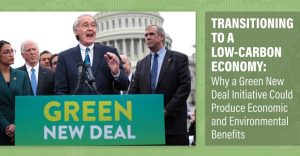 GDAE research is extensively cited in a new article on the Green New Deal and the transition to a low-carbon economy. The article argues that a Green New Deal can produce both environmental and economic benefits and quotes extensively from GDAE researcher Jonathan Harris.See also Harris's related Climate Policy Brief.
GDAE research is extensively cited in a new article on the Green New Deal and the transition to a low-carbon economy. The article argues that a Green New Deal can produce both environmental and economic benefits and quotes extensively from GDAE researcher Jonathan Harris.See also Harris's related Climate Policy Brief.
 Responding to Climate Change in Japan
Responding to Climate Change in Japan
March 31, 2020
GDAE Visiting Scholar David Sussman writes that climate change is threatening important cultural aspects of Japanese life, yet most people in the country have not taken actions to limit their carbon emissions.
In this op-ed in the Nikkei Asian Review, Dr. Sussman calls for individual and systemic changes that will reduce wasteful consumption and fossil fuel dependence.
 The Northeast Healthy Soil Network Hosts Symposium
The Northeast Healthy Soil Network Hosts Symposium
February 21, 2020
This day-long symposium brought together policymakers, farmers, academics, and students with the goal of advancing healthy soils policies and practices throughout the northeast.
For more about the event and event materials, visit the 2020 Conferences Page.
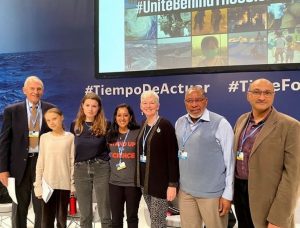 Moomaw speaks atUnite Behind the Science event hosted by Greta Thunberg and Luisa Neubauer duringCOP25
Moomaw speaks atUnite Behind the Science event hosted by Greta Thunberg and Luisa Neubauer duringCOP25
December 10, 2019
GDAE Co-director Dr. William Moomaw, co-author of the recent World Scientists' Warning of a Climate Emergency, joins fellow scientist Youba Sokona, youth activists Greta Thunberg and Luisa Neubauer, and scientists Ko Barrett, Sivan Kartha, and Rachel Cleetus, on the stage at the United Nations COP25 climate conference in Madrid. Read more about the event.
 World Scientists' Warning of a Climate Emergency
World Scientists' Warning of a Climate Emergency
November 5, 2019
William Moomaw co-authored a paper published in the journal BioScience. In the paper, Moomaw and his co-authors declared a climate emergency that without deep and lasting shifts in human activities will result in "untold human suffering". The authors present a suite of graphical vital signs of climate change over the last 40 years for human activities that can affect GHG emissions and change the climate, as well as actual climatic impacts. The paper is endorsed by 11,258 scientists from 153 countries.
The paper has been covered by TheWashington Post, The Guardian, TheBoston Globe, and USA Today.
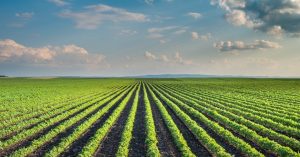 Rome Summit Takes Bold Step Toward Agroecology
Rome Summit Takes Bold Step Toward Agroecology
October 24, 2019
Common Dreamspublished an article by Timothy A. Wise on agroecology and its role as one of the cutting-edge innovations we need to help small-scale farmers adapt to climate change.
 Why Keeping Mature Forests Intact Is Key to the Climate Fight
Why Keeping Mature Forests Intact Is Key to the Climate Fight
October 15, 2019
GDAE Co-Director Dr. William Moomaw was interviewed by Yale Environment 360about the importance of existing forests and why the push to cut them for fuel to generate electricity is misguided.
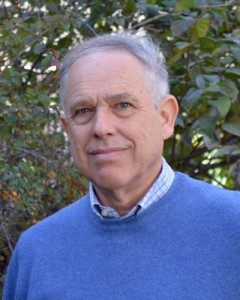
Jonathan Harris awarded Herman Daly Award
August 2019
At the USSEE conference, Jonathan Harris was awarded the Herman Daly Award " designed to recognize individuals who have connected ecological economic thinking to practical applications and implementation of solutions that are sustainable in scale, equitable in distribution and efficient in allocation." Read more about the award.
In the News
 GDAE was cited by CardRates in "Climate Change and Social Equity: How the Green New Deal Could Both Protect the Environment and Benefit Low-Income Earners" on August 11, 2020.
GDAE was cited by CardRates in "Climate Change and Social Equity: How the Green New Deal Could Both Protect the Environment and Benefit Low-Income Earners" on August 11, 2020.

GDAE Visiting Scholar David Sussman presents some of the limitations of banning plastic bags in his July 17, 2020 article in The Conversation.

William Moomaw was cited by The Washington Post in "More than 11,000 scientists from around the world declare a 'climate emergency'" on November 5, 2019.
 GDAE was cited by CardRates in "Transitioning to a Low-Carbon Economy: Why a Green New Deal Initiative Could Produce Economic and Environmental Benefits" on May 12, 2020.
GDAE was cited by CardRates in "Transitioning to a Low-Carbon Economy: Why a Green New Deal Initiative Could Produce Economic and Environmental Benefits" on May 12, 2020.
![]()
William Moomaw was cited by The New Yorker in "Don't Burn Trees to Fight Climate Change — Let Them Grow" on August 15, 2019
![]() William Moomawwas cited by National Geographic in "Trees release flammable methane—here's what that means for climate" on March 25, 2019.
William Moomawwas cited by National Geographic in "Trees release flammable methane—here's what that means for climate" on March 25, 2019.
 William Moomaw was cited by WGBH in "Are We Cutting Down The Wrong Trees In Massachusetts?" on June 25, 2019
William Moomaw was cited by WGBH in "Are We Cutting Down The Wrong Trees In Massachusetts?" on June 25, 2019
About
The Global Development And Environment Institute (GDAE) is a research institute at Tufts University dedicated to promoting a better understanding of how societies can pursue their economic and community goals in an environmentally and socially sustainable manner. GDAE pursues its mission through original research, policy work, publication projects, curriculum development, conferences and other activities.

Grammar in Context 2 Fifth Edition Pdf Download
Source: https://sites.tufts.edu/gdae/



